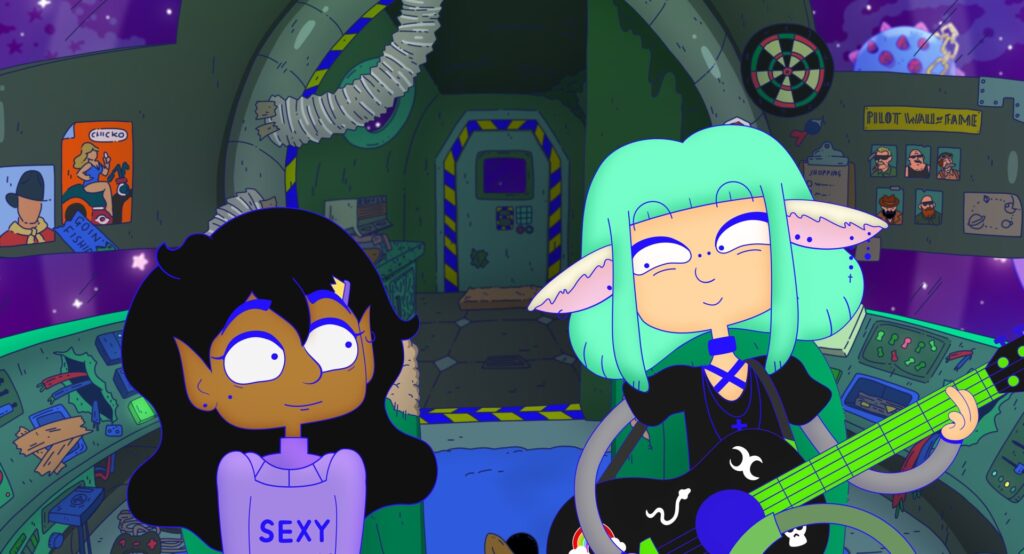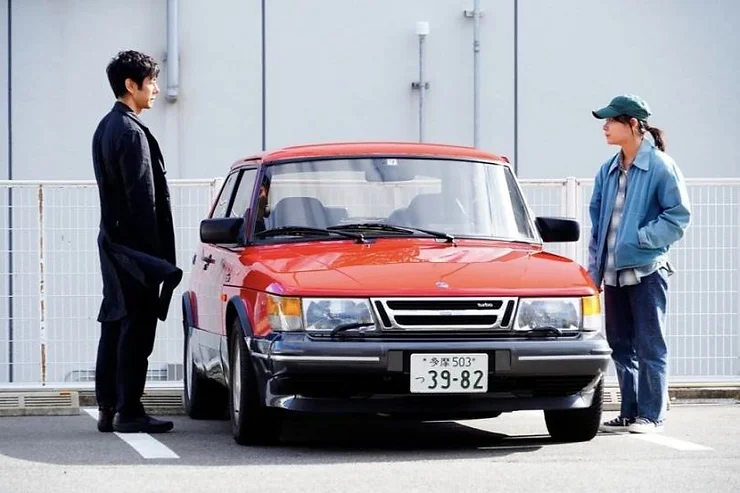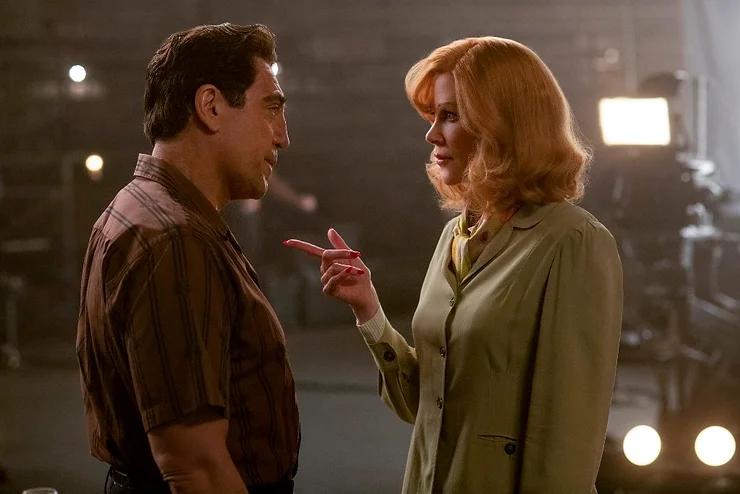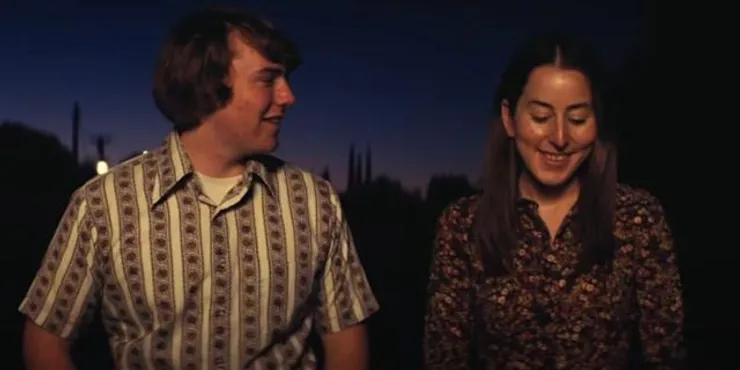Lesbian Space Princess (Australia, 2024)
Original title: Lesbian Space Princess
Director: Emma Hough Hobbs and Leela Varghese
Screenplay: Emma Hough Hobbs and Leela Varghese
Main cast: Shabana Azeez, Gemma Chua-Tran, Bernie Van Tiel, Richard Roxburgh, Mark Bonanno and Kween Kong
Running time: 87 minutes
She’s a lesbian. She’s in space. And she’s a prin-ceeeeeess. Any movie that starts with a musical rhyme like that has the potential to catch my attention – and also that of the LGBTQIAPN+ community, which showed up in force at the screenings of Lesbian Space Princess.

Playing with all possible sexuality and gender stereotypes, the movie begins at a very sad moment in the life of every young lesbian: the end of her first serious relationship – in which her girlfriend has already met her two mothers and had already been staying with her for a week. Set in a fictional Gaylaxia, princess Shaira (Shabana Azeez) will have to face her fear of being alone, and even worse, of having adventures, when her ex is kidnapped by a gang of heterosexual aliens who want to have another chance to attract girls in this universe ruled by women.
Mixing science fiction, slightly suspicious humor, highly stylized 2D animation and a beautiful metaphor about growing up and depression, the film is an ode to people who rebel against the norm. The independent animation, which is becoming known as the first South Australian animation, comes from a pair of women who, to no one’s surprise, are in a relationship, and then to everyone’s surprise, had never co-directed an animation before. Emma Hough Hobbs has worked in the industry mainly on art teams, while Leela Varghese worked for a long time in children’s television.
The film manages to bring together all the best that they absorbed in their respective fields and then also brought it to the direction. The film isn’t afraid to go down paths that even independent animations do not usually follow, and still feeds the peculiar humor that manages to communicate with both younger and older generations. Perhaps because there were almost no men in the session I attended, and possibly no white heterosexual cisgender men, the jokes were taken lightly and without causing any discomfort to the audience.
It’s important to add that the film is also a musical, as the bisexual traveling companion that Shaira makes on her journey is in her solo singing era and narrates all the most important moments of the work with her songs. And, most importantly, the directors manage to discuss issues that are essential for the here and now through this humor projected towards the future.
Translated by: Renata Torres




